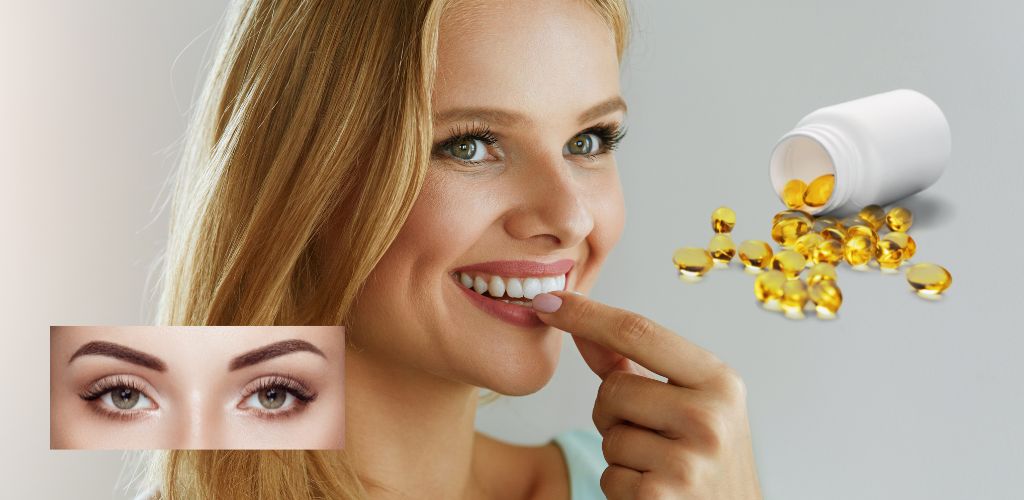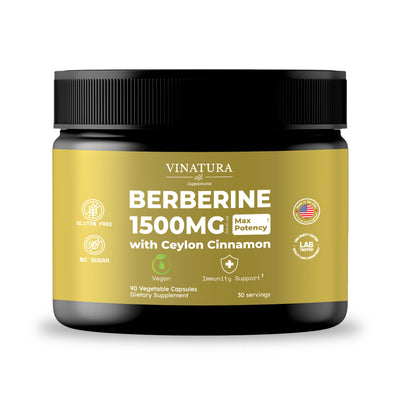
Benefits of Serrapeptase for Eyes? Dosage for Eye Floaters
Serrapeptase is a protein-dissolving enzyme derived from bacteria belonging to the genus Serratia. It has been studied for its potential health benefits for the eyes.
Many people use Serrapeptase to reduce eye floaters, and there are many opinions on whether or not to use it. The dosage for using Serrapeptase is also a concern for many people.
This article will help address the questions surrounding the benefits of Serrapeptase for the eyes.
Before exploring further, please read the disclaimer located at the end of this webpage.
Key Takeaways
- Serrapeptase may offer some potential health benefits for eye health, including reducing inflammation and swelling and improving blood circulation.
- Serrapeptase has mechanisms that may reduce eye floaters.
- Serrapeptase dosage for eye floaters ranges from 10 mg to 60 mg per day, taken on an empty stomach or at least two hours after eating.
- Although serrapeptase is generally considered safe at low doses, it may cause side effects, such as digestive irritation or adverse effects on the blood system.
Does Serrapeptase Help With Eyes Floaters?

Many opinions suggest that Serrapeptase may help reduce eye floaters, although this has yet to be extensively proven through research.
To put it simply, eye floaters are tiny specks or strands in your visual field, and they can be bothersome when you look at light.
Meanwhile, Serrapeptase is an enzyme capable of digesting proteins [1]. As such, it may reduce clusters of proteins that could cause eye floaters.
This has fueled the emergence of opinions. Furthermore, some individuals have used Serrapeptase, which significantly improved their condition of eye floaters.*
According to Xan Jolie, a user of serrapeptase: “A few years ago, I experienced eye floaters every morning. After learning that serrapeptase helps clear non-living matter from the body, what floaters essentially are, I decided to take this brand twice daily for several months. Gradually, the floaters faded away and have not returned since.”*
Tammy Smith shared her experience with serrapeptase: “I have been taking serrapeptase for about six months, initially starting with 40,000 UIs and later increasing to 120,000 UIs, in addition to nattokinase and Vitamin K. I have had floaters for as long as I can remember, dating back to at least age five, and they have been steadily increasing. While the floaters are still present, there are fewer of them now, and they are not as clumped together as they used to be. This improvement has been a great bonus, especially since it also helps alleviate my joint pain.”*
One user, P. Hayes, shared that the product has worked exceptionally well for him. He mentioned that after using the Serrapeptase supplement, he felt less fatigued and was able to sleep better at night. Although he noted that more time might be needed to fully assess its effectiveness, he described his experience so far as very positive.*
However, this mechanism still needs further research to understand better the effectiveness and safety of Serrapeptase for eye floaters.
How Does Serrapeptase Benefit for Eyes Health?

Serrapeptase is believed to have potential benefits for eye health through the following mechanisms [1]:
- Reducing the formation and presence of eye floaters: Serrapeptase can break down protein clusters in the eye's vitreous humor, reducing the formation or presence of eye floaters.
- Improving blood circulation: Serrapeptase is believed to improve blood circulation, helping to efficiently supply nutrients and oxygen to the eyes, thereby maintaining eye health.
- Reducing inflammation: Serrapeptase has anti-inflammatory properties, helping to reduce inflammation in the eyes, which may alleviate discomfort and protect the eyes from damage.
- Inflammation and swelling can contribute to the condition of floaters, so reducing inflammation may help reduce eye floaters and improve eye condition.
Moreover, serrapeptase may act as an analgesic by inhibiting the release of pain-inducing amines such as bradykinin from inflamed tissues [1].
You also may like: What Are Serrapeptase Benefits for Varicose Veins & Spider Veins?
How to Use Serrapeptase for Eye Health?
Currently, Serrapeptase can be used in various forms, including:
- Tablets: Serrapeptase tablets are often available in various dosages and can be easily swallowed with water.
- Capsules: Capsules usually release the active ingredient faster than tablets and may have a quicker effect.
- Gel form: Although not as common as tablets, serrapeptase can also be formulated in gel form for topical application. This may be useful in specific cases, such as dermatological issues.
- Liquid form: In this form, serrapeptase is diluted in a solution for oral consumption. This liquid form may be absorbed more rapidly and is often used in cases requiring quick action.
- Injection form: In specific cases, serrapeptase may be administered in injection form. However, using this form typically requires supervision by a healthcare professional.
Serrapeptase Dosage for Eye Floaters
Serrapeptase is used from 10 mg to 60 mg per day on an empty stomach or at least two hours after eating. The enzyme activity unit is 20,000 units per 10 mg [1].
Additionally, many Serrapeptase products are currently on the market with different dosages. It is important to carefully read the instructions for use to ensure you are taking the correct and adequate dosage for your needs.
Things You Need to Consider When Taking Serrapeptase for Eyes
When using Serrapeptase for the eyes, there are some considerations:
- Dosage: Ensure adherence to the recommended dosage to achieve the best efficacy and avoid unwanted side effects.
- Timing of use: Serrapeptase is typically recommended to be taken on an empty stomach at least two hours after eating, and no food should be consumed for about half an hour after taking Serrapeptase.
- Side effects: Although Serrapeptase is considered safe, it's important to be mindful of potential side effects, such as digestive irritation or adverse effects on the blood system.
- Drug interactions: If using Serrapeptase along with medications like Warfarin, Clopidogrel, or Aspirin, as well as natural remedies like garlic, fish oil, and turmeric, there may be an increased risk of bleeding or bruising.
Learn more: Can You Take Serrapeptase And Lumbrokinase Together?
Other Ways to Improve Eyes Floaters and Your Eyes Health
Eyes are the windows to the soul, so perseverance is important in keeping them bright and radiant. Apart from using Serrapeptase, there are other ways to improve eye floaters and eye health, such as:
- Balanced nutrition: Include antioxidant-rich foods like leafy greens, fruits, seeds, and omega-3 fatty acid-rich foods like salmon and flaxseeds.
- Protect eyes from sunlight: Use UV-protective sunglasses outdoors, especially during peak sunlight hours.
- Perform eye exercises: Engage in simple eye exercises like eye rotations and focusing on near and far objects to reduce eye strain.
- Maintain adequate sleep and proper eye rest: Ensure sufficient sleep and relax your eyes by taking eye breaks every hour when working in front of a computer.
- Regular eye check-ups
- Maintain a safe distance from electronic devices.
Conclusion
Serrapeptase may benefit eye health, but it should be discussed and monitored by a doctor or healthcare professional.
For those considering using Serrapeptase to reduce eye floaters, although Serrapeptase has mechanisms to reduce floaters, it's always best to seek professional advice beforehand.
Besides Serrapeptase, other methods exist to improve eye floaters and overall eye health.
Related Articles:
- Benefits Of Serrapeptase For Heart Disease & Arterial Plaque
- Does Serrapeptase Help Unblock Fallopian Tubes?
- Can Serrapeptase Help With PCOS?
References
- [1] Bhagat S, Agarwal M, Roy V. Serratiopeptidase: A systematic review of the existing evidence. International journal of surgery. 2013;11(3):209-217. doi:https://doi.org/10.1016/j.ijsu.2013.01.010
Testimonial Disclaimer
*The testimonials presented on this website are provided by individuals based on their personal experiences with our products. These testimonials represent individual opinions and experiences, which may not be typical or applicable to all users of our products. Results may vary depending on a variety of factors, including individual health, lifestyle, and adherence to product usage instructions.Author

Product Disclaimer
Including an ingredient or study does not evaluate, endorse, or recommend any Vinatura product or any third-party product. Some ingredients discussed may not be used in any Vinatura product.
The content of the articles has not been evaluated by the Food and Drug Administration (FDA) and is not intended to promote or endorse any specific product. Any products sold on this website are not intended to diagnose, treat, cure, or prevent any disease.
Opinions and Endorsements
Any claims, statements, or opinions expressed in the articles are those of the author(s) and do not necessarily reflect the views or opinions of the manufacturers of the dietary supplement products. The products sold on this website are separate from the content of the articles and are not directly endorsed or associated with the information presented here.
Liability Disclaimer
The author(s) of the articles, website, and manufacturers of the dietary supplement products do not assume any liability for any potential consequences arising from the use of the information provided in the articles. Ingredient effects, dosages, and safety vary by individual, formulation, and context; some ingredients interact with medications or may be unsuitable during pregnancy or lactation. It is recommended that individuals consult with a qualified healthcare professional before making any dietary or lifestyle changes, including the use of dietary supplements.
Product Usage
Please refer to the product labels and packaging for specific usage instructions and guidelines for the dietary supplement products sold on this website.
Customer Support
For any concerns or questions regarding the dietary supplement products, please contact our customer support team, who will be more than happy to assist you.





Leave a Comment
Be the first to comment.
What do you think?